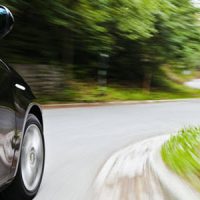What Is Considered Reckless Driving in Virginia?

Basically, reckless driving is operating a motor vehicle with conscious disregard for the safety of other motorists. The law lists several examples, including losing control of a vehicle or driving a vehicle with a serious mechanical defect, like faulty brakes. Reckless driving is not a fix-it ticket that courts dismiss upon proof of compliance. Reckless driving isn’t a traffic ticket that an online traffic school course takes care of. Reckless driving is a serious offense.
A Leesburg reckless driving lawyer approaches a reckless driving case just like a murder case. This approach begins with a thorough case evaluation that identifies all procedural and substantive defenses. Then, an attorney collects evidence that supports these defenses and carefully looks for weaknesses in the state’s case. With this strong foundation in place, a successful resolution is usually available. In reckless driving cases, this resolution is usually a complete dismissal of charges or a plea to a lesser-included offense.
Loss of Control
In a section 46.2-853 matter, the state must prove, beyond a reasonable doubt, that the defendant had complete control of the vehicle and then lost complete control of it.
Beyond a reasonable doubt is the highest standard of proof in Virginia law. Basically, the state must present overwhelming evidence to obtain a guilty verdict, since the defendant is presumed innocent. So, a Leesburg criminal defense lawyer doesn’t have to “prove” the defendant is “innocent.” An attorney must simply create a reasonable doubt as to the defendant’s guilt.
In a loss-of-control reckless driving case, prosecutors must prove that the defendant had complete control and then, because of a driving mistake, lost complete control.
Millions of the vehicles on Virginia roads are subject to safety recalls due to mechanical defects. But, since a recall notice goes to a record owner, the current owner knows nothing about the issue. In other words, the driver doesn’t have complete control of the vehicle, from the moment the motorist pulls out of the driveway.
Loss of control is relatively easy to prove in civil court. The burden of proof is only a preponderance of the evidence (more likely than not). Things are different in criminal court, because of the higher burden of proof. Usually, the state must prove the defendant saw a serious hazard, like a patch of black ice, and did nothing to avoid that hazard.
If their evidence is weak, prosecutors are usually willing to reduce these charges to a simple traffic ticket that, as mentioned, traffic school can cure.
Mechanical Defect
Reckless driving charges could also hold up in court if the motorist drives a vehicle with “inadequate or improperly adjusted brakes on any highway in the Commonwealth.”
We mentioned mystery safety recalls above. Furthermore, many brake components are defective but aren’t the subject of a recall. Furthermore, the state has the burden of proof to show that the brakes were bad. If the vehicle was mangled in an accident, such evidence is probably unavailable.
A “highway” is a public street. Usually, apartment complex and shopping mall parking areas aren’t public places, even if they have traffic control devices and street names.
In addition to these evidence issues, many people facing section 46.2-853 charges don’t look like criminals. Most jurors believe, or are at least willing to believe, that a car crash was an unavoidable accident which wasn’t anyone’s fault. They’re very hesitant to punish these people in criminal court. Prosecutors know this and are willing to make deals.
Work With a Dedicated Loudoun County Lawyer
There’s a big difference between an arrest and a conviction in criminal law. For a confidential consultation with an experienced criminal defense attorney in Leesburg, contact Simms Showers, LLP, Attorneys at Law. Virtual, home, and after-hours visits are available.
Source:
law.lis.virginia.gov/vacodefull/title46.2/chapter8/article7/
